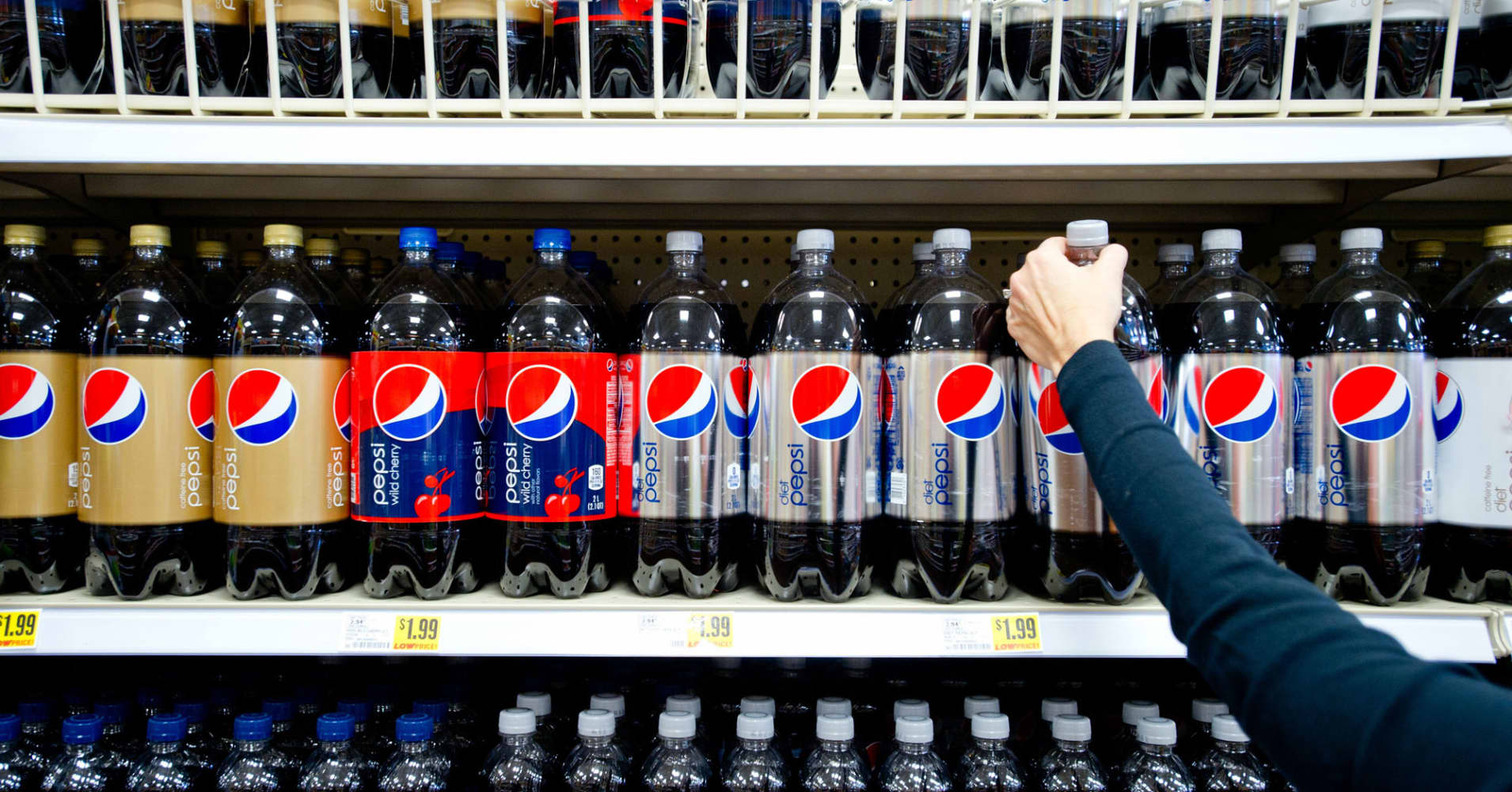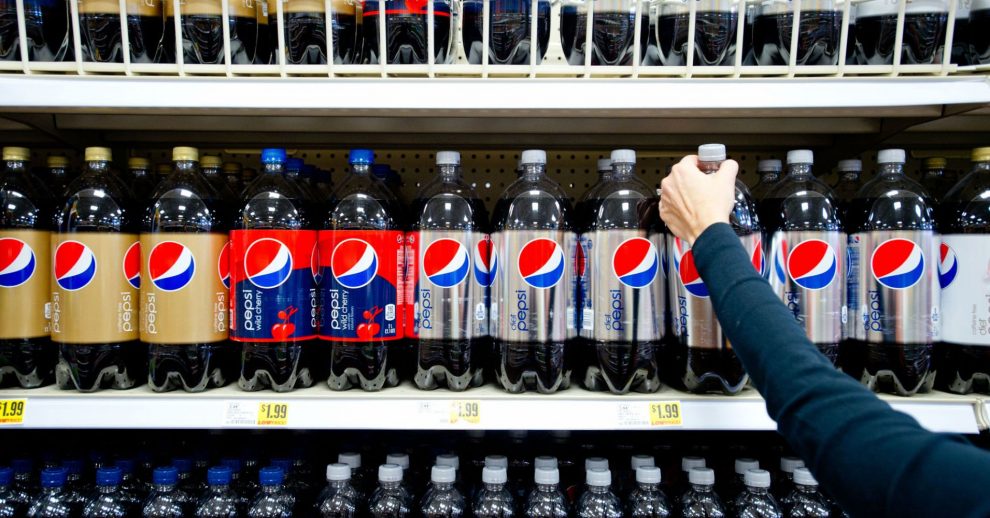
PepsiCo shares jumped to a record high on Wednesday after the beverage and food giant reported quarterly earnings and revenue that topped analysts’ expectations, thanks to continued growth internationally and by its Frito-Lay snack business.


PepsiCo shares jumped to a record high on Wednesday after the beverage and food giant reported quarterly earnings and revenue that topped analysts’ expectations, thanks to continued growth internationally and by its Frito-Lay snack business.
Shares of the company rose 3% during morning, to a record $126.85 per share and boosting the market value to $177.6 billion.
“Frito-Lay North America and each of our international divisions delivered particularly strong operating performance, and PepsiCo Beverages North America generated sequential quarterly net revenue acceleration,” CEO Ramon Laguarta said in a statement.
Here’s what the company reported compared with what Wall Street was expecting, based on a survey of analysts by Refinitiv:
The Frito-Lay owner reported fiscal first-quarter net income of $1.41 billion, or $1 per share, up from $1.34 billion, or 94 cents per share, a year earlier.
Excluding restructuring and impairment charges, tax benefits and other items, PepsiCo earned 97 cents per share, topping the 92 cents per share expected by analysts surveyed by Refinitiv.
Net sales rose 2.6% to $12.88 billion, beating expectations of $12.70 billion. Frito-Lay was the standout this quarter with sales growing 5.5% from last year. Executives said on a conference call with analysts that the division had a stronger Super Bowl than past years.
PepsiCo has been investing in its snack business by adapting its portfolio to changing consumer tastes, like its acquisition of healthy snackmaker Bare Foods.
In December, the food and beverage giant completed its $3.2 billion acquisition of SodaStream, which lets consumers make carbonated drinks at home. Executives would not disclose specifics about its performance so far, but Laguarta said SodaStream is already increasing its penetration in its top markets: Europe, Canada and the U.S.
The company has effective net pricing to thank for some of its revenue growth. For example, sales volume for its North American beverage business dropped by 2% during the quarter that ended March 23, but PepsiCo raised prices by 4%, resulting in 2% sales growth. This marks the third quarter that the unit has returned to growth after consumers shied away from sugary drinks like PepsiCo’s Gatorade and Mountain Dew.
“Our North America beverage businesses really has been strengthening over the past couple of quarters as we’ve strengthened advertising, we’ve strengthened execution,” CFO Hugh Johnston said on CNBC’s “Squawk on the Street.” “The portfolio is working and you see stepped-up execution from investments in the business.”
Organic revenue, which strips out the impact of acquisitions, divestitures and foreign exchange, grew by 5.2% during the quarter. Laguarta blamed currency headwinds for the difference between overall sales growth and organic growth. Like rival Coca-Cola, the global soda giant is facing foreign exchange pressure but said that macroeconomic factors were positive during the quarter.
“We do expect to see more commodity inflation in the balance of the year, and transactional forex will pressure commodities as well,” Johnston told analysts.
Its international segments saw the highest organic revenue growth. The company’s Latin American and Asia, Middle East and North Africa divisions reported double-digit organic growth.
On Wednesday, the company reiterated its 2019 targets, including 4 percent organic revenue growth and earnings per share of $5.50.
Last quarter, PepsiCo missed Wall Street’s expectations for its 2019 outlook when it forecast declining earnings as it spends more on marketing and advertising to boost sales. Laguarta said the investments in Pepsi and Gatorade are already paying off, but the company expects to focus more in Mountain Dew this year.
“I’m confident that we’ll see performance improvements in the next quarters in Dew,” he said.
To balance those investments, the soft-drink maker is planning to slash at least $1 billion in costs every year through 2023, which will include layoffs in jobs that can be replaced by automation.
—CNBC’s Jessica Bursztynsky contributed to this report.